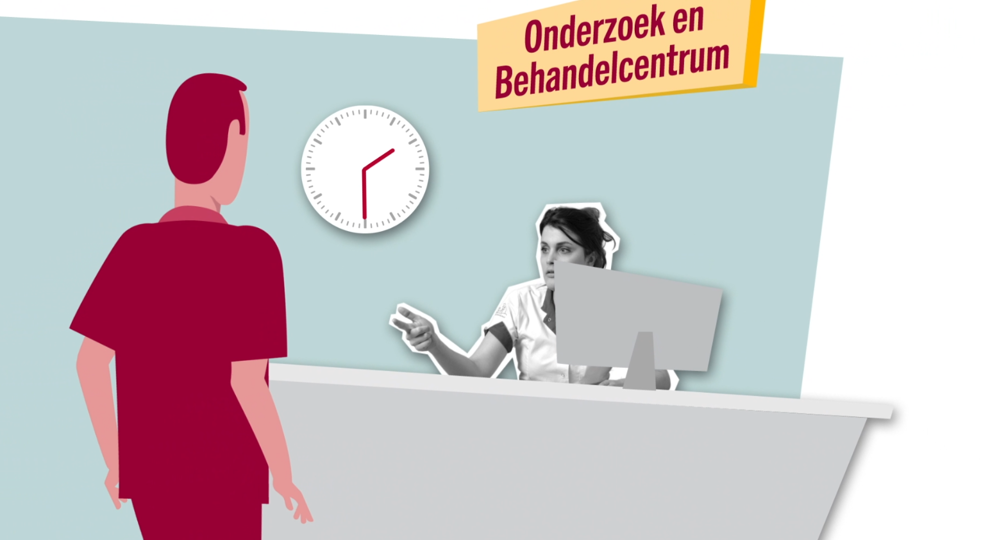Endobronchial Ultrasound (EBUS)
An endobronchial ultrasound (EBUS) is an examination of the lymph nodes surrounding the airways (bronchi).
Thin, flexible scope
Your doctor will use a scope - a thin, flexible tube with a miniature camera at the tip, and an ultrasound machine. This scope will be inserted into the airways through your mouth and throat. You will be sedated during the procedure.

What to expect
An EBUS - how does it work?
Your throat will be numbed and you will receive a sedative that will put you to sleep (propofol) or a muscle relaxant (midazolam) through IV. General anesthesia unfortunately is not an option as you will need to be able to breathe without assistance. We will numb your throat using a numbing spray. The spray can leave a bitter taste in the mouth.
Tissue sample
We will insert a ring into your mouth to keep your jaws open to allow for the insertion of the scope. The camera can give us a clear view of your airways while the ultrasound allows us to view the lymph nodes. If necessary, we can take tissue biopsies from the lymph nodes using a needle.
You will be asleep during the procedure and will not experience any discomfort.
Preparations
Please do not eat or drink between midnight and the start of your procedure. The only exception is the small bit of water needed to take your medication.
Codeine to suppress cough
If you are taking blood thinners or medication for diabetes , your doctor will tell you which drugs you can still take before the procedure. Your pulmonologist will prescribe you codeine. Please take this medication one hour before the start of your procedure together with a little bit of water. Codeine can suppress the urge to cough.
After the procedure
You will have to spend an hour in the recovery room after your surgery. If no abnormalities were found, you will receive your results right away. The results of the tissue tests will come in after about 10 weekdays. Your physician will discuss the results with you during your next consultation.
Food and drink
Please do not eat or drink until 1.5 hours after the procedure. Eating with a numb throat may cause choking. Your throat may feel sore for some time, and swallowing might be hard. You also may experience bloody mucus when you cough. This should not last longer than a day. If this symptom continues, please contact your physician.
Do not travel alone
You cannot drive after the procedure, or take public transport or a taxi without someone accompanying you. We recommend bringing someone along to your appointment who can take you home.
 nl
nl
 Nederlands (Nederland)
Nederlands (Nederland)
 English (United States)
English (United States)